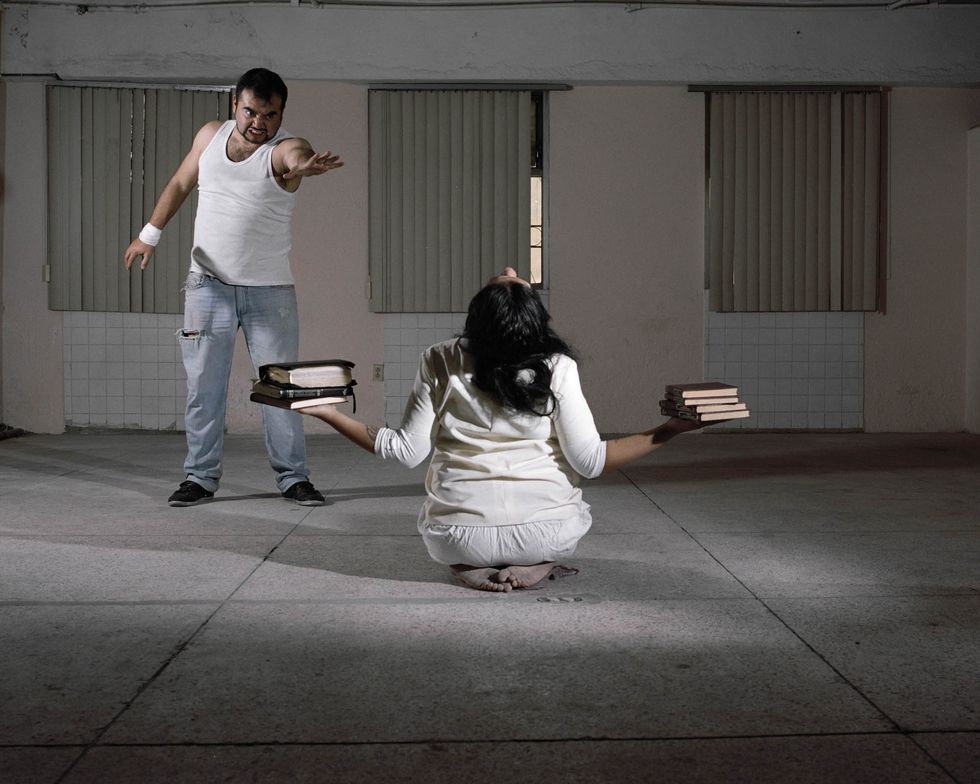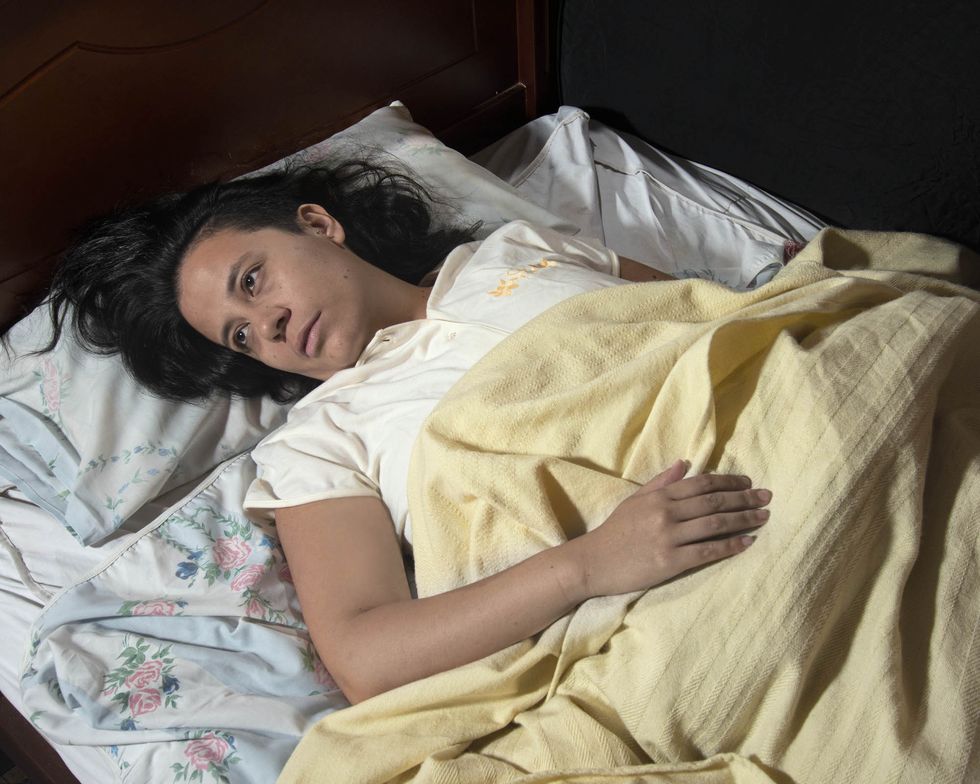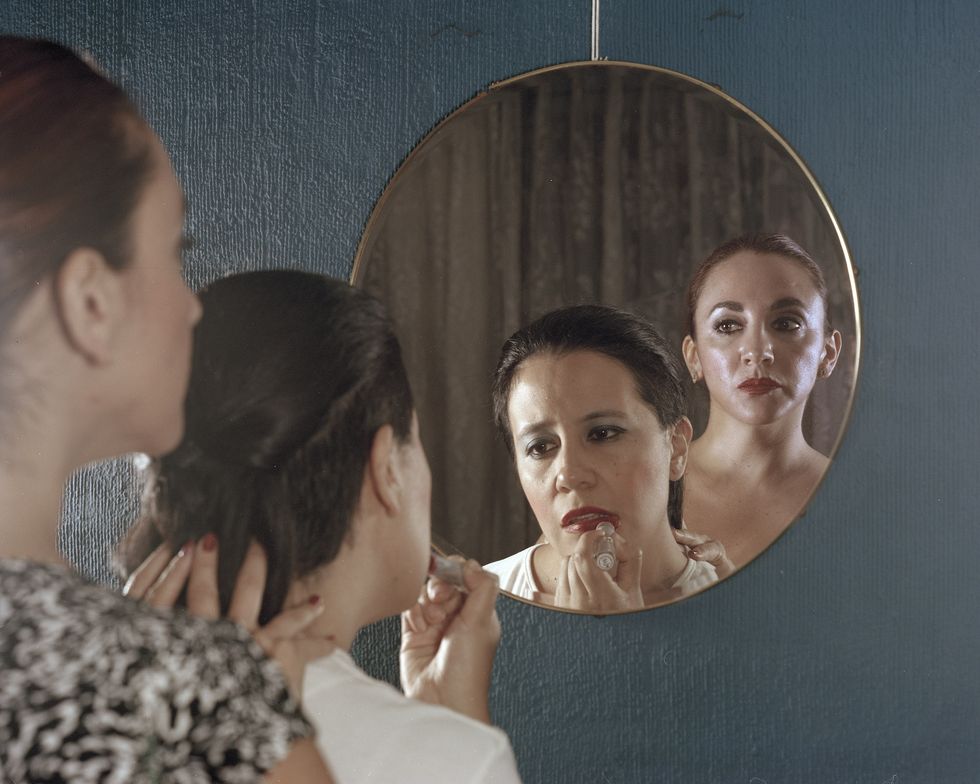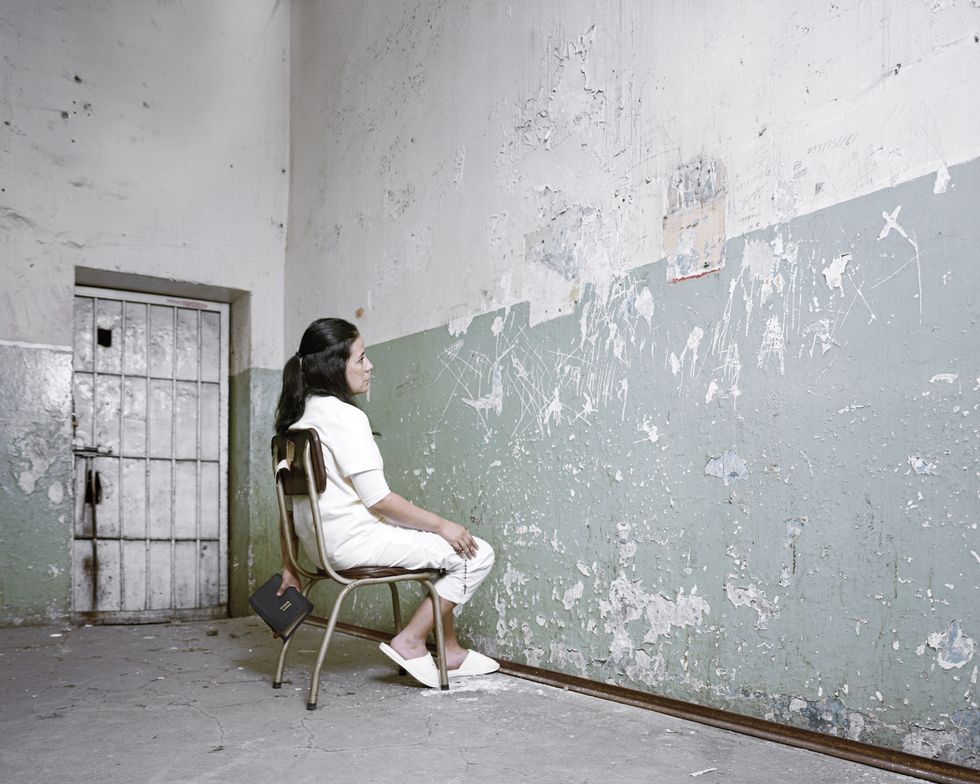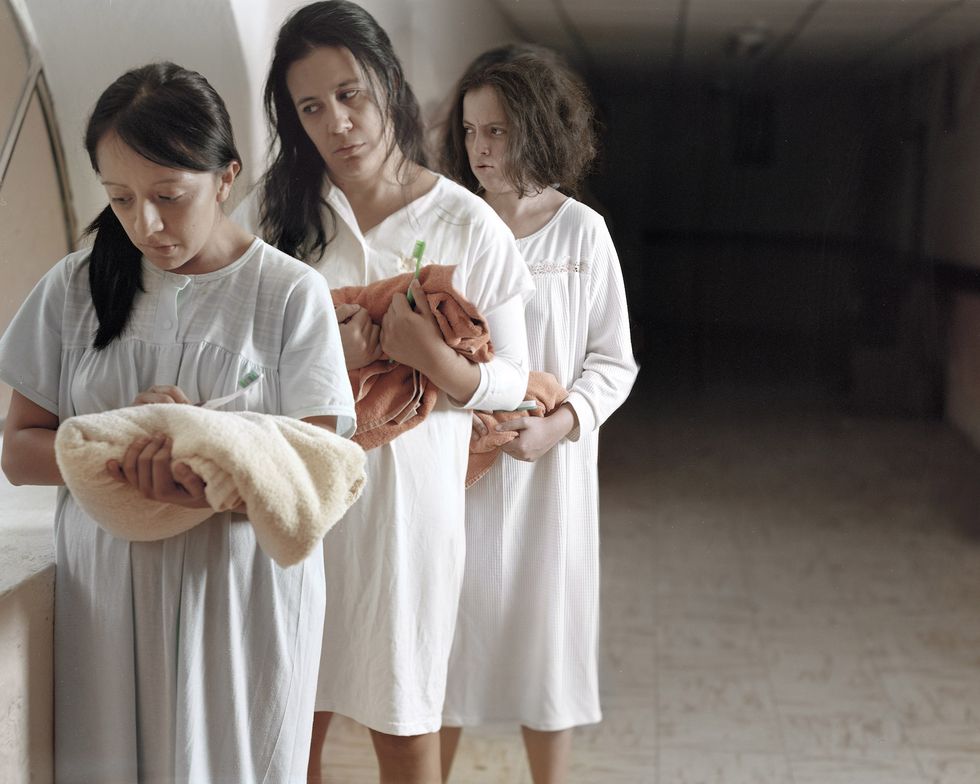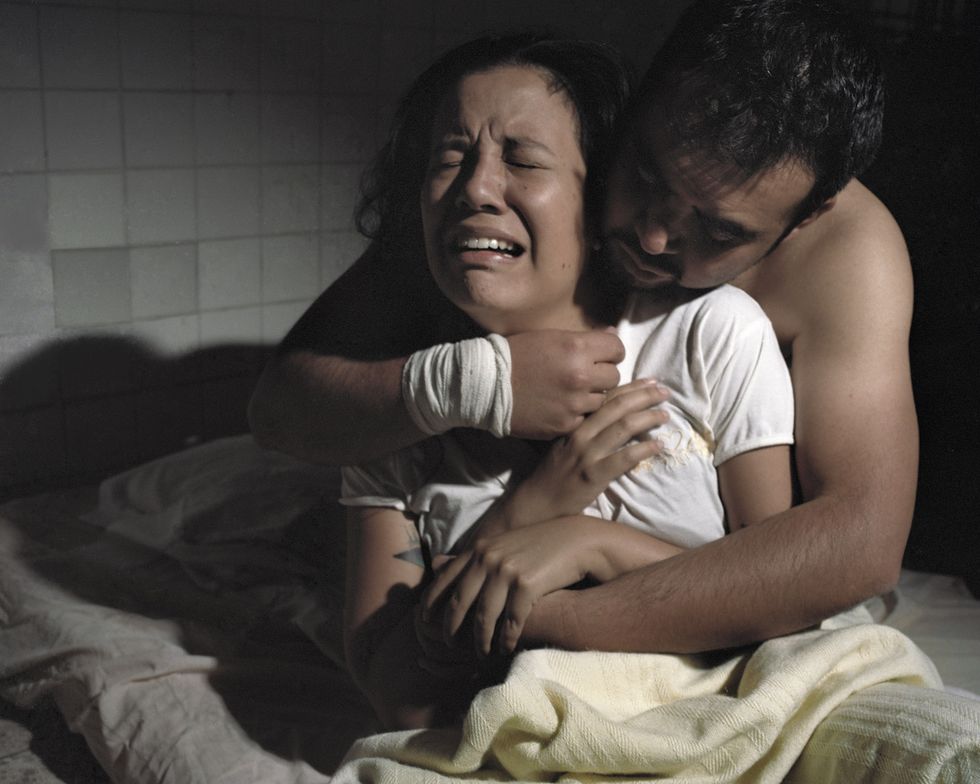Even though she grew up in Ecuador, Paola Paredes didn't learn about the Clinicas de Deshomosexualizacion until a friend told her about them four years ago. Housed inside seemingly normal drug and and alcohol rehab clinics around the Latin American country are suspected secret conversion therapy clinics — facilities where LGBTQ Ecuadorians are allegedly taken against their will to be "cured" of anything that isn't cisgender heterosexuality.
Paredes, 31, immediately knew she wanted to focus on the clinics in a photography project. "I remember being completely appalled," she said. "At that time I wasn't out to my parents yet, so I had a fear it could happen to me." She also hadn't yet released her first photo series, "Unveiled," which shows Paredes coming out to her family around a dinner table.
When she first took on the project, she didn't know how she'd manage to show the horrors inside of clinics that keep themselves strategically hidden. All she knew was she needed to first find people who'd claimed they'd been in the clinics themselves.
Save for a Change.org campaign and flurry of news articles published in 2011, and occasional local news stories, there isn't much knowledge of the clinics around the country. "A lot of people do not know these clinics exist, it's not talked about," Paredes said. A statement on her website estimates about 200 of Ecuador's drug and rehab facilities secretly house conversion therapy clinics, but she said activist groups in the country told her that number closer to at least 300. The exact number would be impossible to know since most of these conversion clinics are in rural areas.
"Ecuador is very religious and very Catholic, it's kind of taken to the borderline fanatic Catholic," Paredes said of her home country. "Homosexuality becomes something taboo, something not talked about, something wrong."
The friend who first told Paredes about the clinics eventually was able to introduce Paredes to a woman who said she was sent to one herself. Paredes interviewed this woman over the course six months, as well as two other women she spoke with once. Their stories of torture inside the secret clinics inform Paredes's latest photo series released late last year, titled "Until You Change."
"It's very hard to enter these clinics and document them with traditional practices because cameras aren't allowed, and the victims who were interviewed didn't want to be photographed," Paredes said. She decided the best way to show what was happening within the clinics was to do the same thing she did in "Unveiled" and use herself as the subject in the images. When she came back to Ecuador from London, she scouted locations that matched the starkness of the clinics in the women's stories.
"It was really hard figuring out how to make the images authentic, a lot of these images are violent and gruesome," Paredes said. At first, she tried shooting with friends as the other actors in the photos. She'd tell them to kick her or slap her, but they didn't come out looking real enough. She decided to hire an Ecuadorian theater director and team of professional actors. "The images you see are really going on, you see me really going through this," Paredes said. "I was myself, I was being locked up. The scenes are real — I put myself through those emotions. After I did those scenes I had a couple of months where I had to see a therapist."
There were certain scenes Paredes knew she had to include in her finished series. The women she interviewed all told horrific stories, for example, of being forced into rituals that were meant to torture traditional femininity into them. "A lot of these clinics try to have these traditional gender roles for men and women — if you learn how to put makeup on and you learn how to behave like a proper woman, then maybe you will stop being lesbian," Paredes said. "And on the other side, there's this horrendous type of treatment, horrendous physical and emotional torture."
The women Paredes interviewed said they recalled being forced to put on makeup each morning that was to be worn all day. They talked about being made to put on heels and skirts to practice walking like a woman in front of a male "therapist." Other stories center on force-fed religion — one woman who wasn't allowed to speak with other women in the clinic was punished for breaking the rule by holding stacks of heavy Bibles while loud religious music played.
But some of the most harrowing stories involve physical torture and corrective rape. All the women mentioned the use of cables that were used to hit them, and one woman believes she may have been raped after taking a slew of unidentified pills that caused her to have memory loss. Refusing to eat the meager meals they were given led to women being beaten or kicked by male therapists.
"It's family [that puts the women in the clinics], which is the saddest part," Paredes said. "They're put in by their family against their will." This is part of why Paredes was so initially frightened by the existence of the clinics. Had her own family not been immediately accepting of her sexuality and instead reacted terribly to her coming out, she may have ended up alongside the women whose stories she portrays in the gruesome images. The primary woman Paredes interviewed was kept there for four months, and was placed at the clinic by her family. The woman doesn't remember how she wound up there — she only remembers being drugged at a hospital and later waking up inside the clinic. The way out of the clinics is if your family comes to get you, or if the clinic decides you've "finished treatment" and releases you.
Paredes isn't sure what's next for her. "I had a very naive idea when I started this project that I was going to close the clinics down," she said. "Now I realize that closing these clinics down is impossible." Because they're so hidden, Paredes doesn't see how they can be completely eliminated. She feels there's a "third chapter" to come — she views "Unveiled" as chapter one, "Until You Change" as chapter two, and, ideally, something focused on education as chapter three.
"People need to be taught here in Ecuador about homosexuality," Paredes said. "They need to be taught tolerance and acceptance so we can prevent this from happening."
How you can help: The equivalent of a Just Giving account has been set up on Generosity, which you can contribute to in order to help prevent the ongoing existence of these establishments. Read about it here.

